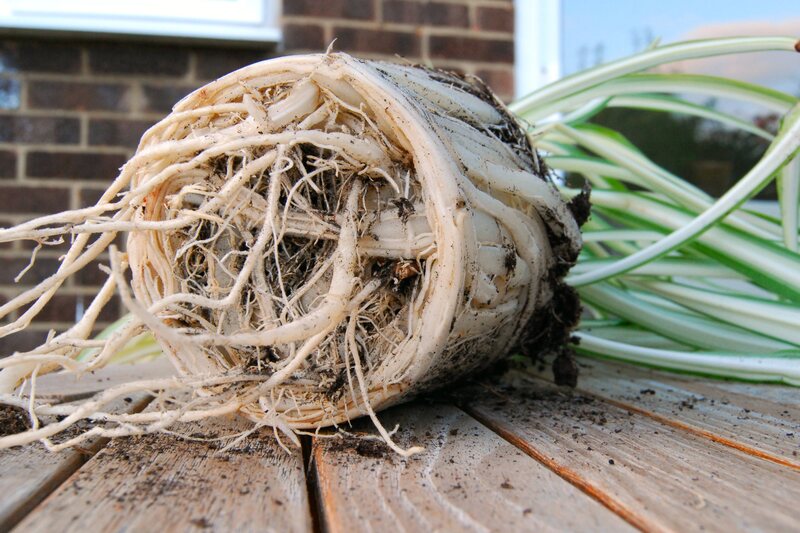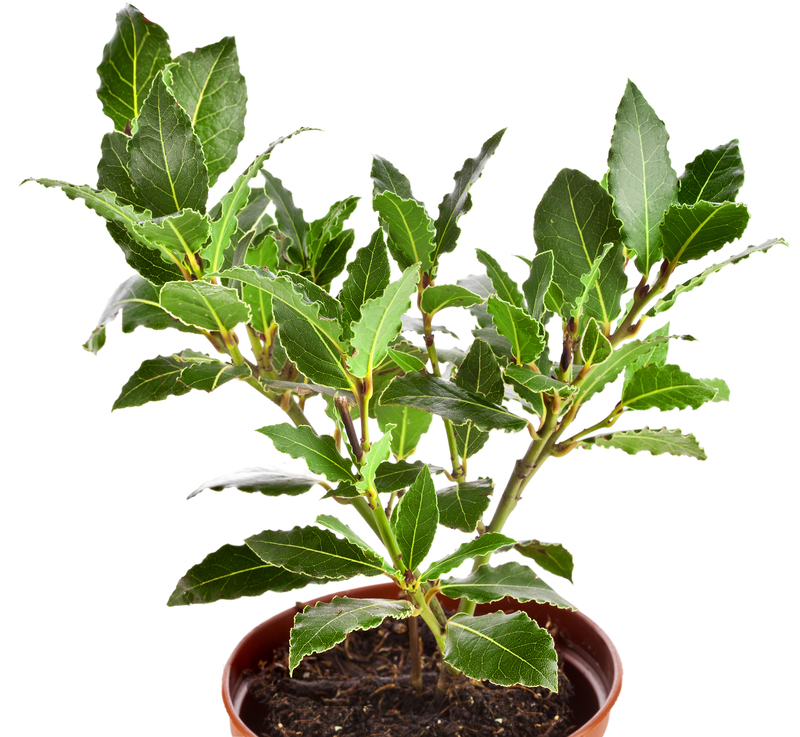Elevating Soil Nutrients with Natural Waste Solutions
Posted on 07/09/2025
Elevating Soil Nutrients with Natural Waste Solutions
The foundation of any vibrant and productive ecosystem is healthy, nutrient-rich soil. As environmental awareness grows, innovative and sustainable approaches to agriculture and gardening are gaining traction. One of the most impactful strategies to boost soil fertility is by enhancing soil health with natural waste solutions. By turning organic waste into valuable soil amendments, we not only minimize environmental pollution but also foster sustainable food systems, conserve resources, and restore depleted soils.
Understanding Soil Nutrients and Their Importance
Soil nutrients are essential mineral elements that plants need for growth and development. The three primary macronutrients--nitrogen (N), phosphorus (P), and potassium (K)--play critical roles in supporting robust plant health. Secondary nutrients like calcium, magnesium, and sulfur, along with trace micronutrients, complete the complex nutrient web.
In modern agriculture, heavy reliance on synthetic fertilizers has often disrupted natural nutrient cycles, leading to degraded soils, waterway contamination, and greenhouse gas emissions. Restoring balance through natural waste management for soil nutrition is not only a sustainable solution but also economically beneficial for small and large-scale growers alike.

The Role of Natural Waste in Soil Enrichment
Natural waste materials--from kitchen scraps to crop residues--contain organic matter and essential nutrients. When managed and processed correctly, they become potent soil amendments, elevating soil nutrients and structure.
- Compost: Decomposed organic material made from plant, food, and yard waste.
- Green manure: Plants grown and incorporated into the soil to boost organic matter content and nutrient levels.
- Animal manure: Waste from livestock, often mixed with bedding material, delivers rich sources of nitrogen and other nutrients.
- Crop residues: Leftover stalks, leaves, and roots after harvest, which decompose and feed the soil ecosystem.
By utilizing organic waste for soil improvement, we harness circular processes that nature has refined over millions of years.
Composting: The Heart of Natural Waste Soil Solutions
What is Composting?
Composting is the controlled biological decomposition of organic matter, such as food scraps and yard trimmings, by microorganisms under aerobic (oxygen-rich) conditions. The result is humus--a dark, crumbly, and nutrient-dense material that enhances soil fertility.
- Inoculates soil with beneficial microbes
- Improves soil structure for better water retention and aeration
- Provides slow-release nutrients for sustained plant growth
- Reduces landfill waste and greenhouse gas emissions
How to Start Composting at Home or on the Farm
Composting can be as simple or as complex as your needs demand. Here's a step-by-step guide to turning your organic waste into valuable soil nutrition:
- Gather Ingredients:
- Greens (nitrogen-rich): vegetable scraps, coffee grounds, grass clippings.
- Browns (carbon-rich): dried leaves, paper, straw, wood chips.
- Build Your Pile: Layer greens and browns, aiming for a 2:1 ratio of browns to greens.
- Maintain Moisture: The pile should feel like a wrung-out sponge.
- Turn Regularly: Aerate your compost every one to two weeks to provide oxygen and speed up decomposition.
- Monitor and Harvest: Compost is ready when it's dark, crumbly, and earthy-smelling--typically 2-6 months.
Green Manure and Cover Crops: Living Natural Waste Solutions
Another natural waste solution for boosting soil nutrients is the use of green manure and cover crops. These living plants are intentionally seeded and later incorporated into the soil to elevate its organic matter and add essential nutrients, particularly nitrogen.
- Leguminous cover crops (like clover, vetch, peas) fix atmospheric nitrogen into the soil.
- Non-leguminous cover crops (such as rye, oats, buckwheat) prevent erosion, add biomass, and improve soil tilth.
By planting and incorporating these crops between cash crops, farmers can significantly reduce the need for synthetic fertilizers, suppress weeds, and improve overall soil health.
Animal Manure: Ancient and Effective Organic Waste for Soil Nutrition
Benefits of Manure in Soil
Well-aged animal manure is among humanity's oldest natural fertilizers. Properly managed, it provides a blend of nutrients, organic matter, and beneficial microbes that invigorate soils and support plant health.
Key benefits of animal manure:
- Boosts nutrient levels (especially N, P, K)
- Enhances microbial biodiversity
- Improves soil structure and moisture retention
Safe Use Practices
To harness these benefits while minimizing risks, it's crucial to:
- Fully compost manure before application to kill pathogens and weed seeds.
- Avoid over-application to prevent nutrient runoff and groundwater contamination.
- Apply at appropriate times (e.g., fall or early spring) to maximize nutrient use efficiency.
Utilizing Crop Residues and Mulching
Crop residues--the stalks, leaves, and husks left after harvest--are another vital source of natural organic matter. Incorporating these materials back into the soil not only recycles nutrients but also builds up the soil's organic content, increasing its ability to hold moisture and resist erosion.
Mulching is a related technique, where plant materials like straw, grass clippings, and shredded leaves are spread over the soil surface. This method:
- Reduces soil temperature fluctuations
- Minimizes evaporation and conserves water
- Suppresses weed growth
- Adds organic matter as the mulch breaks down
Vermicomposting: Boosting Soil Nutrients with Earthworms
Vermicomposting involves using earthworms to decompose organic waste, creating a nutrient-dense amendment called worm castings. These castings are teeming with beneficial microbes and available nutrients, making them a premium natural waste solution for soil enrichment.
- Superior nutrient profile compared to regular compost
- Promotes plant disease resistance
- Improves soil aeration and water infiltration
Biochar: Advanced Organic Waste Recycling for Sustainable Soils
Biochar is a stable, carbon-rich product created by heating natural waste (such as wood chips, crop leftovers, or manure) in a low-oxygen environment--a process known as pyrolysis. When added to soil, biochar offers several benefits:
- Locks in nutrients and water, making them available to plants over time
- Enhances soil microbial habitats
- Sequesters carbon, helping to combat climate change
- Improves soil structure and cation exchange capacity
Practical Steps for Elevating Soil Nutrition with Natural Waste
For gardeners and farmers looking to implement these techniques, the transition to a natural-waste-powered soil fertility program can be seamless with a strategic approach:
1. Assess Your Soil
Use soil tests to determine nutrient levels and organic matter content. This data helps you select the appropriate organic waste amendments and avoid over- or under-application.
2. Source Quality Organic Waste
Choose waste streams free from contaminants (such as plastics, heavy metals, or harmful chemicals). Kitchen scraps, leaf litter, animal bedding, and safe municipal green waste are all viable options.
3. Implement Diverse Solutions
Rotate between composting, green manures, mulching, and--when possible--biochar or vermicomposting. Integrating multiple methods ensures a broad spectrum of nutrients and maximizes the health benefits for your soil.
4. Monitor and Adapt
Continue soil testing and observe plant health closely. Adjust your natural waste application rates or combination based on results, striving for balanced fertility and robust crop growth.
Long-Term Benefits of Soil Enrichment with Natural Waste
- Reduced dependency on synthetic fertilizers, lowering input costs and supporting organic certification.
- Improved soil biodiversity leading to stronger, more resilient plant communities.
- Better water retention, reducing drought stress and the need for irrigation.
- Increased crop yields and nutritional value
- Lower risk of soil erosion and degradation
- Significant reduction in landfill waste and related greenhouse emissions.
Common Challenges and Solutions
Despite the clear benefits, transitioning to soil enrichment with natural waste products can present challenges:
- Lack of knowledge or resources: Start small, use local workshops, or seek extension advice.
- Odor or pest problems: Use proper composting methods and balance carbon/nitrogen ratios.
- Concerns about pathogens or weed seeds: Ensure adequate composting times and reach appropriate temperatures.
- Regulatory constraints: Check local guidelines on organic amendment use, especially with animal manures.

The Future of Soil Management: Embracing Organic Waste
The path forward for sustainable agriculture and gardening hinges on our collective ability to close nutrient cycles and make the most of our renewable resources. By switching to natural waste solutions for soil health, we protect our environment, strengthen our food systems, and build resiliency in the face of climate challenges.
The time is now to embrace the power of natural waste--giving back to the land, one compost pile at a time.
Conclusion: Nurturing the Earth with Natural Waste
In summary, elevating soil nutrients using organic waste is one of the most effective, accessible, and sustainable choices for gardeners and farmers. Whether through composting, green manures, mulching, or more specialized techniques like biochar and vermicomposting, organic waste solutions breathe new life into tired soils and support thriving ecosystems.
- Enhances soil structure and fertility
- Reduces environmental impacts
- Supports sustainable food production
With knowledge, planning, and commitment, anyone can participate in this regenerative journey. Let's nourish our soils naturally and secure a healthier planet for generations to come.
Latest Posts
Strengthening Your Garden for Adverse Weather Challenges
Plant Your First Garden with 9 Essential Tips
Essential Tools to Elevate Your Outdoor Gardening Experience

